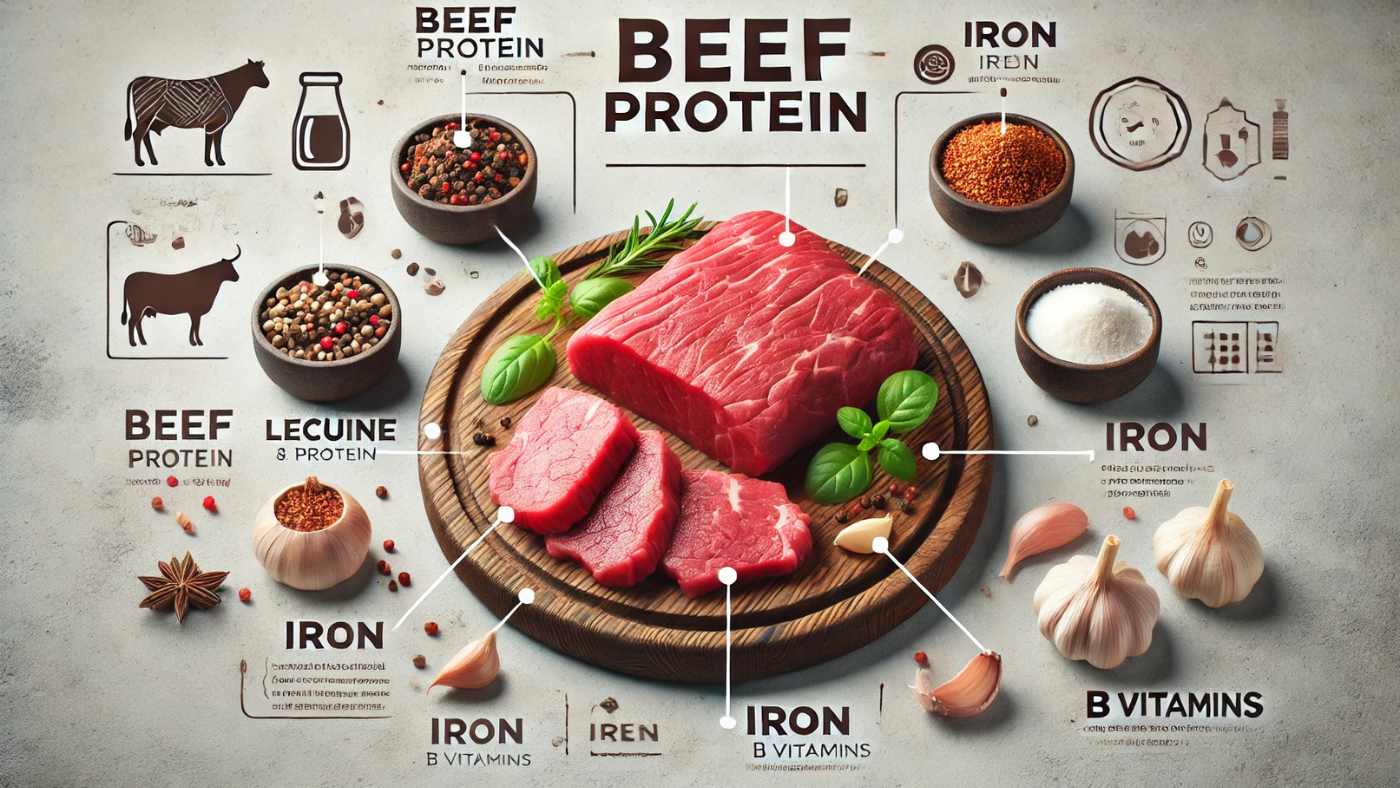Wild Content
-
A healthy, radiant complexion is built on hydrated skin. If you’re on a search for a natural way to fight dryness and smooth out your skin texture, then you can’t try organic shea butter. For centuries renowned as the queen...
-
Life can be so exhausting, but have you ever thought that small things like the scent of life could help you rejuvenate your mind and make you happier? That’s the beauty of spearmint essential oil. This delightful gem has been...
-
The highly potent antibacterial properties of eucalyptus oil make it a natural wonder. For those who are interested in maintaining their skin health naturally, this oil acts as a natural antibacterial agent, promotes skin health, and reduces skin inflammation. In...
-
It’s a post-workout that progress happens. When you power your muscles with the right nutrients after exercise, they grow, repair, and become stronger. Beef protein is a powerful and natural way to jumpstart muscle recovery among the other options out...
-
We all know that protein is the foundation of muscle growth recovery and overall performance for athletes. For example, beef protein provides an extremely powerful replacement for others who would choose to rely on whey or plant-based protein. It is...
-
You're still hard-pressed by the stress of daily living. Modern life doesn’t have much time for relaxation: endless to-do lists and sleepless nights. Fortunately, the power of nature gives us tools that help calm our mind and body. For years,...
-
Protein is an important macronutrient that functions to maintain overall health. A popular choice for a high-quality protein source is beef protein, sometimes coming from whole beef or other protein powders. Read on to learn how to cook with beef...
-
Abstract Summary Objective: This research explores the benefits of beef protein as a dietary supplement for individuals following a ketogenic diet. Context: Keto diets are low in carbohydrates and high in fat, often requiring protein supplementation to maintain muscle mass...
-
Abstract Summary Objective:This study investigates the potential role of beef protein supplementation in promoting hair health and addressing hair thinning. Context:Hair health is influenced by protein intake, as hair is composed primarily of keratin, a protein synthesized from amino acids....
-
Abstract Summary Objective: This study explores the potential of sustainable beef protein sources to address global nutritional needs while minimizing environmental impact. Context: As the global population continues to grow, the demand for high-quality protein sources increases. Traditional beef production...
-
Abstract Summary Objective: This study investigates the role of incorporating beef protein into meal prep strategies to support dietary goals such as muscle building, weight management, and balanced nutrition. Context: Meal prep has become a popular approach to maintaining a...
-
Worldwide popular for use in skincare routines, Eucalyptus globulous has become an essential oil. This essential oil is renowned for its rejuvenating smell and a great number of health benefits, making it a powerful natural healing agent for beautiful, healthy...
-
Sinus congestion may feel like the weight of the world on your face. It’s really bad for your day. It’s intrusive, blocking your nasal passages, taxing your facial expressions constantly, and even perforating the eardrum, making breathing difficult. Eucalyptus, from...
-
It’s no fun having skin redness and embarrassment. Finding the proper remedy for your skin problem is often difficult, whether it is irritation and inflammation or a deep nervous condition. A trusted natural, versatile solution that's been around for generations:...
-
Eucalyptus and spearmint are two natural wonders that have been used for centuries. Each plant has its own benefits, but put together, they make a living relaxor product. In this article, we look at how eucalyptus and spearmint are able...
-
Sometimes, the secret to revealing bright, healthy skin does not necessarily lie on the shelves stocked with complexion enhancers. Now and then, the best approach is to go with the flow. Enter spirulina, a tasty and easily digestible food product...
-
Given that the Earth’s population is increasingly using chemical-based skincare products, the need for natural skincare solutions is nonzero. Leading candidates are eucalyptus, spearmint, and spirulina—three giants that will revive skin health gently. One has a specific utility for relieving...
-
Like most spices, cinnamon is not only warm and rich, but it’s also a natural powerhouse with a long history of medicinal use. This versatile spice is packed with antioxidants and a great array of essential compounds, supplying health benefits....
-
Cinnamon is one of the most beloved of all the world’s spices, celebrated for its sweet, warm flavor and uses. Cinnamon has a long history derived from the inner bark of trees from the Cinnamomum genus. In ancient times, it...
-
It’s important for your physical and mental health to get a good night’s sleep. Unfortunately, stress, anxiety, and the strains of typical daily living conspire to keep restful sleep unattainable. An old Ayurvedic herb is currently being touted as a...















